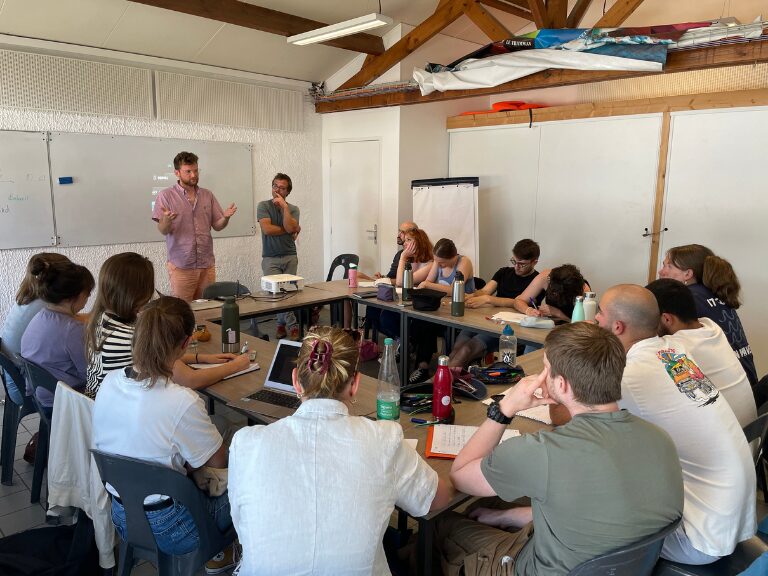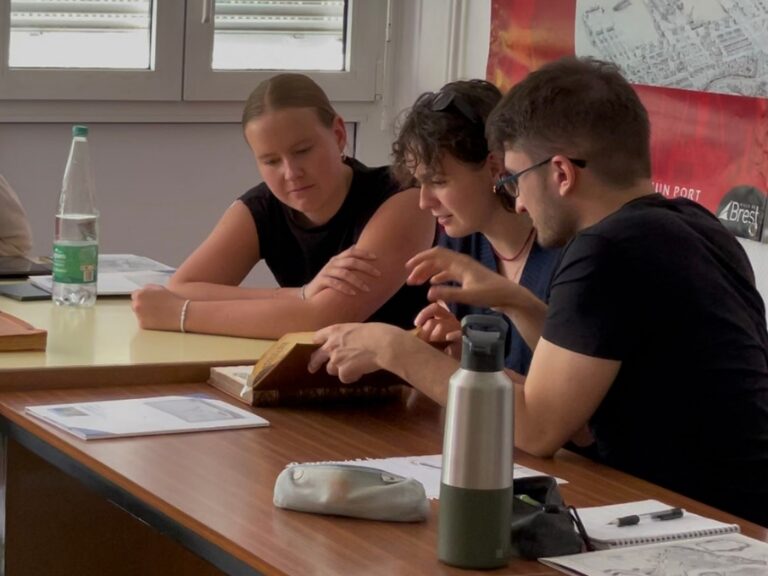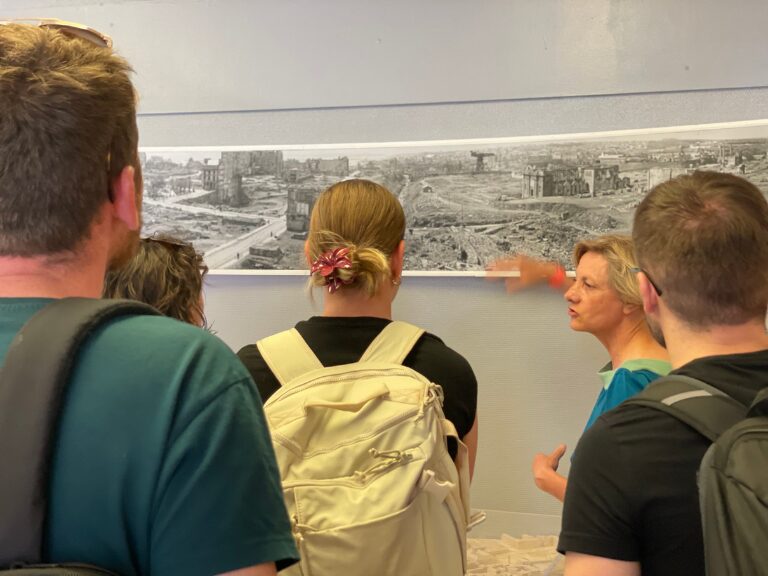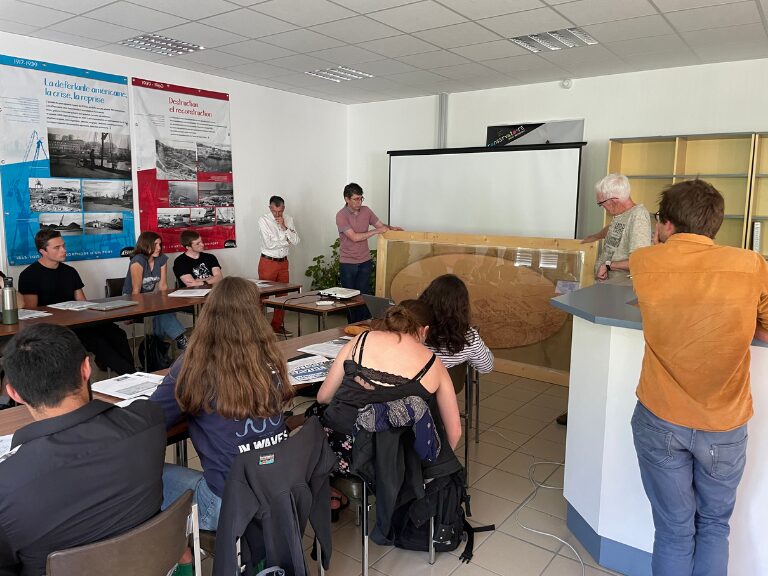Hiss’ta voile PIM: Exploring the history of sailing and its inspiring relevance today to envision its future

From June 23 to 27, 2025, the PIM Hiss’ta Voile brought together 15 students around the theme of sailing, focusing on fishing, passenger transport, and cargo shipping. Over the course of a week, the students explored the history of sailing in the port of Brest and current local experiments to envision its future evolution.
How were Brest’s port infrastructures designed to accommodate large sailing ships (those famous three-masters) and other boats during the age of sail? What techniques, trades, and practices were involved? How was society organized around the port? Today, associations and sailing transport cooperatives are working to adapt wind-powered propulsion to meet the needs of businesses, fishermen, scientists, and passengers, significantly reducing the environmental impacts typically associated with these activities. What technical methods are still in use, and what are the new organizational approaches? This PIM offered a journey into the past to better understand the present and imagine the future, from 1750, a period of major growth for Brest’s port activities, to 2050, envisioned as a year of sustainable development aspirations for society.
Following several presentations and port visits, the group worked collectively on different forward-looking scenarios covering technical, social, economic, and geopolitical aspects to imagine what the port of Brest might look like in 2050.



Participants benefited from a variety of presentations:
- Jean-Marie Kowalski, École Navale, Lecturer, École Navale – Sorbonne University
- Chantal Rio and Hughes Courant, Metropolitan and Municipal Archives
- Alain Boulaire, Agrégé and PhD in Literature and Modern History
- Xavier Laubie, SHD Brest
- Jean-Yves Billard, Jean-Frédéric Charpentier, Jérôme Cros
- A guided tour of the port of Brest by the Brest Tourist Office
- A visit to the Port Authority of Moulin Blanc in Brest
- Arthur Landormy, sailor, Operations Manager in wind-powered cargo transport
- Laura Troudet, co-founder of the Skravik cooperative
- Yann Royer, member of the management team at Sailcoop
- Manuelle Philippe, Research Engineer – University of Western Brittany
At the end of the PIM, the students were better able to analyze the issues surrounding the development and evolution of sailing, particularly in rethinking mobility and its social implications. More broadly, they began a critical analysis of the evolution of sailing techniques by exploring its history. Finally, they demonstrated forward-looking thinking and creativity by imagining alternative futures under different scenarios.
The students presented their work on Friday afternoon during the PIM Forum, using a timeline highlighting the history of sailing in the port of Brest:
Video recap of the PIM:
Supervisors:
Clovis Lefranc, ENSTA – Brest Campus
 Attention, vous utilisez un navigateur peu sûr !
Attention, vous utilisez un navigateur peu sûr !